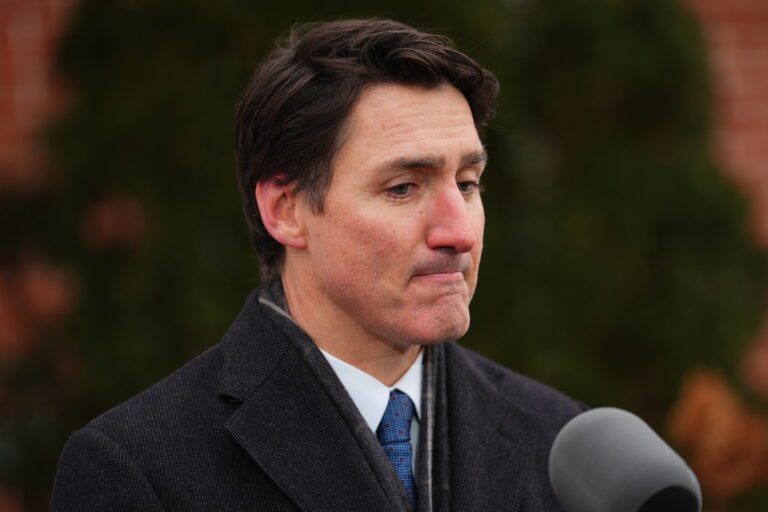If giving up our Charter rights and freedoms in order to save lives is a good thing, then we really haven’t gone far enough.
Consider the fact that over 280,000 Canadians die each year. If we want to give up our personal choices and human dignity in order to save lives, we must take a hard look at the biggest killers. COVID-19 is not one of them.
Cancer kills almost 80,000 Canadians each year. Heart disease kills another 51,000, followed by 13,000 annual deaths from cerebrovascular disease (stroke). Bronchitis, emphysema, and asthma kill over 12,000 Canadians each year. Diabetes kills almost 7,000 Canadians each year, and liver diseases another 3,000. If all of these diseases were cured, we would still die of old age. Car accidents and other accidents kill 12,000 Canadians each year, in addition to injuring and permanently crippling countless others.
Thus far in 2020, COVID deaths in Canada are just over 9,000, however that number includes Canadians who died with the virus but not necessarily from it. One can speculate and surmise that the number of COVID deaths would have been higher without lockdowns, but there is a lack of hard data to confirm or deny that hypothesis. One can also speculate about how many fewer vulnerable people would have died with better measures in place to protect elderly-and-sick seniors in nursing homes, who make up roughly 80 percent of COVID deaths in Canada.
While credible evidence is lacking on both of these hypotheses, it is clear that lockdown measures have pushed hundreds of thousands of Canadians into poverty, unemployment, and despair, and have bankrupted hundreds (likely thousands) of small businesses, which will no longer provide any tax revenues to pay for our health care.
If physical health trumps freedom, the government should ban smoking, sugary drinks, unhealthy foods and driving vehicles. Since a healthy and low-stress lifestyle with plenty of exercise and eating lots of fruits and vegetables is the best way to preserve physical health, shouldn’t that lifestyle be mandated by government? If it “saves” (i.e. prolongs) even one life, all these limitations on personal freedom are worth it, right?
Of course cancer is not contagious, one will correctly point out. But if “saving” or prolonging life is the preeminent public policy objective that justifies stripping away Canadians’ Charter freedoms, personal autonomy and human dignity, then why not simply require people to do what government deems best to meet this supreme goal of living as long as possible?
If COVID-19 were in fact the sort of disease that we feared back in March, we should be more tolerant of losing our Charter freedoms to move, travel, associate, assemble and worship.
But public policy should be based on facts known in August, not the speculation of March. When looking at actual data and analyzing it in its global and historical context, this virus is not anywhere close to as deadly as it was made out to be in March of 2020, when Charter-violating lockdown measures were imposed.
Many Canadians prioritize living a life they deem to be most meaningful and worthwhile, even at the risk of an earlier death. For example, many seniors and grandparents would rather continue seeing their grandchildren and going to church, even if it increases their chance of dying of COVID-19. Many seniors in nursing homes would rather continue interacting with their spouses and other loved ones in person in the final months and years of their lives, even if it means death by COVID.
The pre-COVID trend in Canada’s laws and policies has been to support individuals’ own choices, even the choice to commit suicide. But now governments have removed individuals’ voluntary choices if those choices would expose them to even a small risk of dying of COVID-19. This is not an age (or era) that demands consistency, respects logical coherence or embraces reason.
The solution for car accident deaths and injuries is obvious: ban private car ownership and reduce speed limits to 30 km/hour everywhere. Yes, this would inconvenience people, but human life and health matter more than freedom, comfort and pleasure. Money now spent on private car ownership could instead be diverted towards public transit. Yes, it would be inconvenient to have to wait outside for the next bus when grocery-shopping in January, not to mention lugging bags of groceries on public transit. But people need to think of the greater societal good: fewer people dying in car accidents.
To save Canadians from bronchitis, emphysema, asthma and cancer we should make tobacco illegal. Marijuana could potentially remain legal in edible form (as long as the brownies don’t contain sugar), but smoking marijuana should be prohibited because it’s bad for your lungs.
Prohibiting alcohol would save many Canadians from liver disease. Prohibition would also remove pleasure and enjoyment from millions of Canadians who enjoy wine and beer in moderation, but if it saves lives then this loss of freedom is surely worth it. Prohibition would also make life easier for those who struggle with alcoholism, by removing the in-your-face temptations that alcoholics have to resist each day; this is all part of protecting other people.
To save people from cancer, heart disease and diabetes, the government should legally require every individual to devise and carry out an appropriate exercise program, and eat only healthy foods. Our federal and provincial governments employ hundreds of thousands of civil servants, so we have the manpower to enforce these laws. We also have more than enough police resources to issue tickets to those who don’t comply. Yes, some people acquire these conditions through genetics or other factors beyond their control, but literally tens of thousands of deaths could be delayed simply by forcing Canadians to exercise and to eat only healthy foods.
Again, one could argue correctly that heart disease and diabetes are not contagious, and that lockdown measures are about protecting other people, not one’s own self. This makes sense in theory. However, there is little if any hard evidence that forcing people to wear masks while on airplanes and while shopping is saving anyone from anything.
Further, the rationale of “protecting other people” leads directly to the bigger question of whether lockdown measures produce more good than harm, or more harm than good. Politicians have available to them the information and data that would answer this question. But thus far, they have expressed little interest in conducting a full and thorough review of all the benefits, and all the harms, that lockdowns have actually produced. It’s much easier to brag about “saving lives,” all while ignoring those who were killed.
If “protecting other people” is the rationale for violating our freedoms in order to defend against a contagious disease, this rationale should also include protecting them from lockdown harms.
Many if not most Canadians care more about family, friendships, money, spirituality, education, career, pleasure, convenience, sports and recreation than they do about trying to live as long as possible. But if delaying inevitable death is society’s primary aim, our Charter freedoms will need to take a back seat.
Sadly, some people are so terrified of dying that they have forgotten how to live. It seems that politicians who violate our Charter freedoms to move, travel, associate, assemble and worship are imposing their belief that delaying death is the most important thing in life, regardless of what other goals and priorities Canadians might choose for themselves.
John Carpay, The Post Millennial








